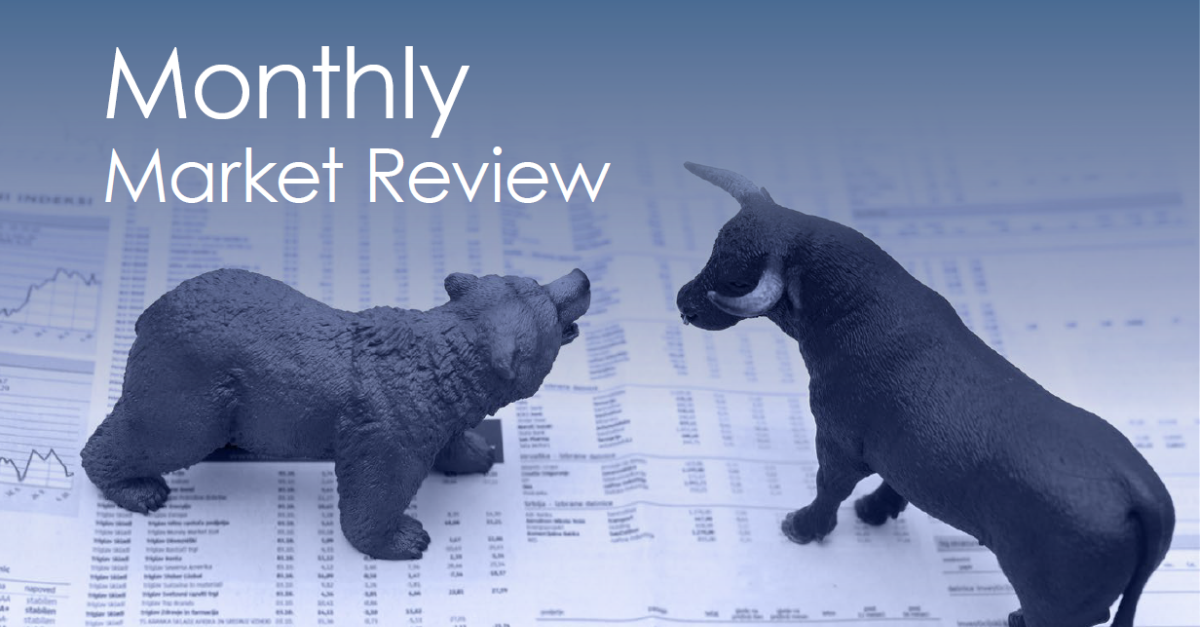A stock market dip can be anxiety-inducing, especially for older Americans. Some people may think sitting tight and idly riding out downturns in the market as an onlooker is the best bet. However, hiding extra money in your mattress during a volatile market isn’t the answer either, as you’ll inevitably lose money due to inflation. How can you continue to invest confidently, even when you’re worried?
People Trust Long-Term Investments, With Reason
According to HCR Wealth Advisors, your long-term investment strategy is probably still safe. While recent events in the stock market have been labeled as “cratering stock prices”, most Americans should be investing 30–40 years out, making the ten-year graphs less meaningful.
Understanding the stock market doesn’t depend on knowing what to invest in, but why. Investors who view a “crisis” as either something to be weathered or an opportunity to be taken advantage of may not reap benefits even after a period of time, but in the long run, are likely to prosper. This is because smart investing takes market volatility into account; it doesn’t have to be radically adjusted when there’s a bump in the road.
If you’re genuinely concerned about the broader stock market stage, you can stay conservative. HCR Wealth Advisors looks at the pros and cons of many traditionally “safe,” low-risk investments, as well as the advantages of higher-risk investments when committed to long-term.
Certificates of Deposit (CDs)
A high-rate, federally insured bank certificate of deposit with a lifecycle of at least five years will typically not quite keep pace with inflation. You could end up losing purchasing power over time but their face value is preserved, making them a safe, if an ultimately boring and non-profitable way to invest.
Multiyear Guaranteed Annuities
Another option with no links to stock-market indexes is the multiyear guaranteed annuity. It’s a simple product that allows you to invest your money with an insurance company, with a fixed rate of interest for a set number of years. Returns on five-year investments can put you on par with inflation and you don’t pay taxes on earnings until you withdraw them.
Mutual Funds Invested in Bonds
Putting money into long-term mutual funds that are invested in bonds has only a slightly elevated risk. Their return isn’t fixed, so as interest rates rise, these futures’ markets will decline. However, as rates rise, the fund will buy new bonds that pay higher rates and the income the bond fund produces will rise as well. Yields on most of the general intermediate-term bond funds and blue-chip corporate bonds compare favorably to inflation rates.
Stock Index Funds
A mutual fund, or exchange-traded fund (ETF), is the kind of passive stock investing most people are familiar with; the Dow Jones Industrial Average, the S&P 500, and the Nasdaq 100 are all exchange-traded funds. Long-term, this type of investing is relatively safe and can be expected to provide average returns over the long-term that are double or triple the inflation rate. However, there is some level of risk with stock index funds, and short-term money can be lost in a sudden downturn.
Real Estate
Real estate remains America’s sweetheart when it comes to investing. It can almost always be expected to pay off in the long-term but the kind of real estate you decide to invest in matters. For a time, flipping houses was all the rage and real estate investment trusts (REITs) were set up by the dozen to take advantage of people without time to do a home flip, but who wanted to cash in on the opportunity. Currently, REITs have turned more towards residential rental properties as housing becomes more and more expensive and scarce, and returns steadily rise.
Dividend Stocks
A dividend stock pays a dividend as a regular cash payout and is usually held by an older, more mature company. Returns can fluctuate between payouts, so a few years with payouts at 2–3% might be followed by several years with payouts at 8–9%. This can be one way to diversify your portfolio to take advantage of higher returns at intervals over a long period without too much risk.
Growth Stocks
Growth stocks promise high growth and high investment returns but typically put all profits back into the business, so an annual dividend isn’t paid out until growth slows. Growth stocks are often but not always tech companies and can be risky initially because of inflated stock value over early investor buys. A bear market or recession can cause short-term plunges in value but over the long term these stocks may perform exceptionally well: examples include Facebook and Amazon.
Your Plan of Action Depends on a Range of Factors
So, how do you decide what to do in a time of widespread financial “panic”? Do you sit tight, refuse to invest any more, and hoard your cash while the market fluctuates? Do you invest more or less according to your normal habits and count on long term results to shake out for the best?
Maybe you decide it’s time to take advantage of the chaos and buy into tried and true stocks while prices are at record lows. Maybe you give in to anxiety and start selling even as prices dive and trading is stopped. When it comes to your best plan of action, a lot will depend on how long your investment outlook is, and how much you can afford to lose. The wealthy, as well as the young and moderately well-off, may well decide that there are some deals on the table too good to pass up.
If you’re still years away from retirement with a modest investment portfolio, holding your course and thinking long-term may feel like the most sensible course. If you are about to retire and are worried about your nest egg, you may opt to be even more conservative and try to limit short-term damage.
Ultimately, however, it pays to remember that every recession, panic, and downturn in the market has eventually been recoverable. This, over any other consideration, may just be what wins out in the end.
Originally published at https://moneyjourneytoday.com on March 17, 2020.
*This article is for informational purposes only and should not be considered investment advice.



